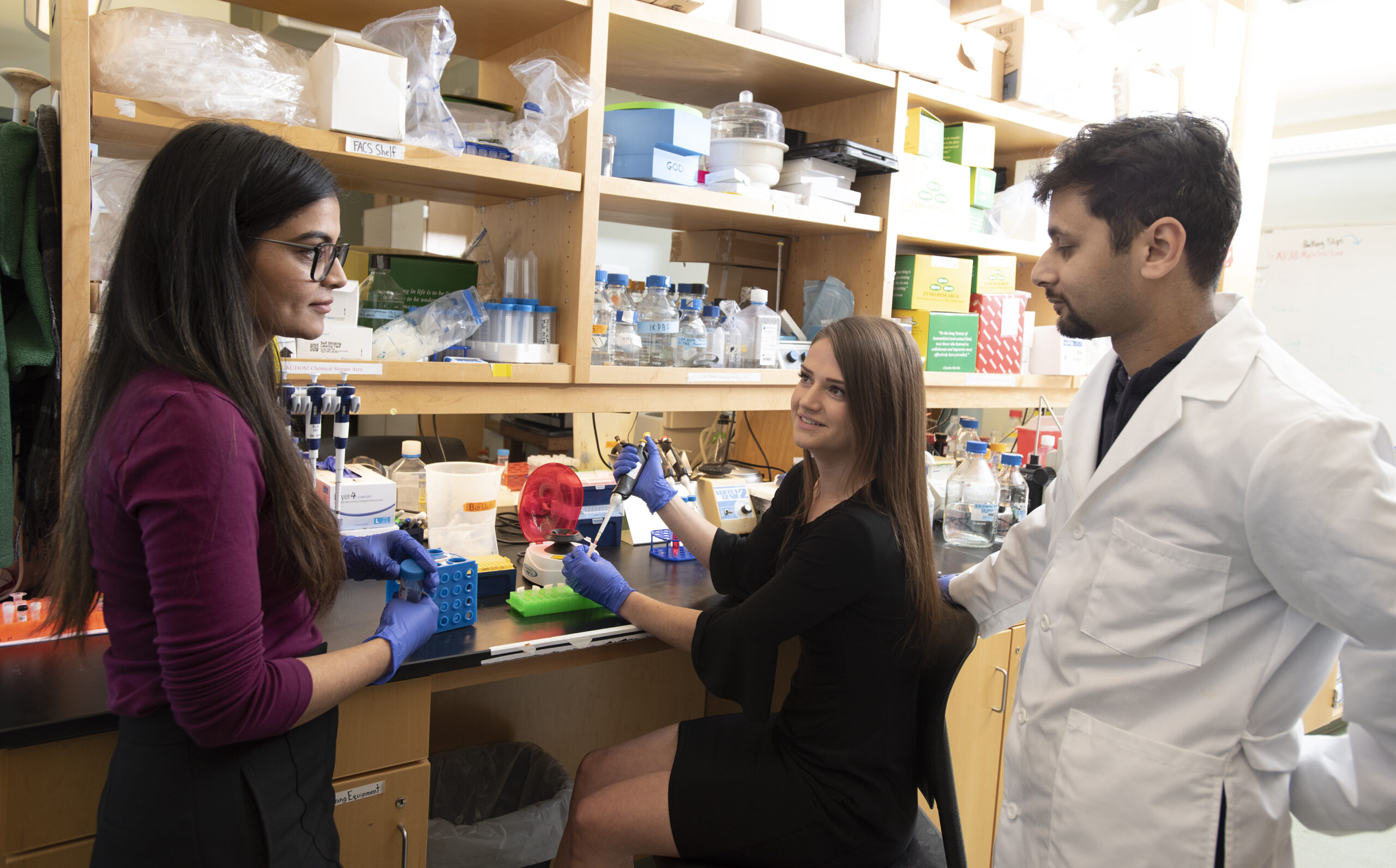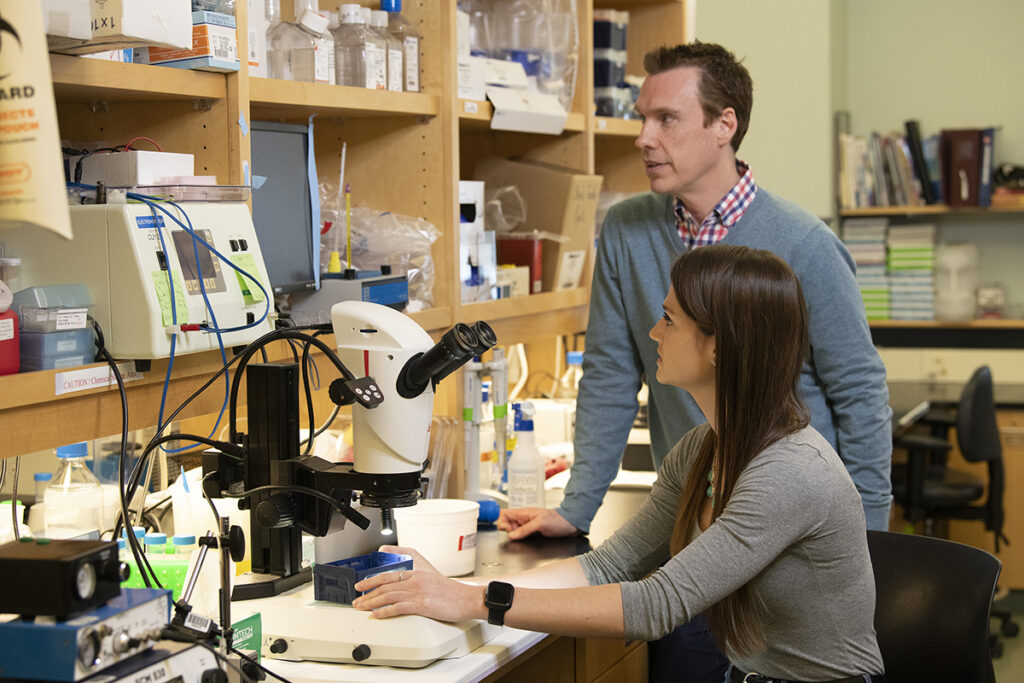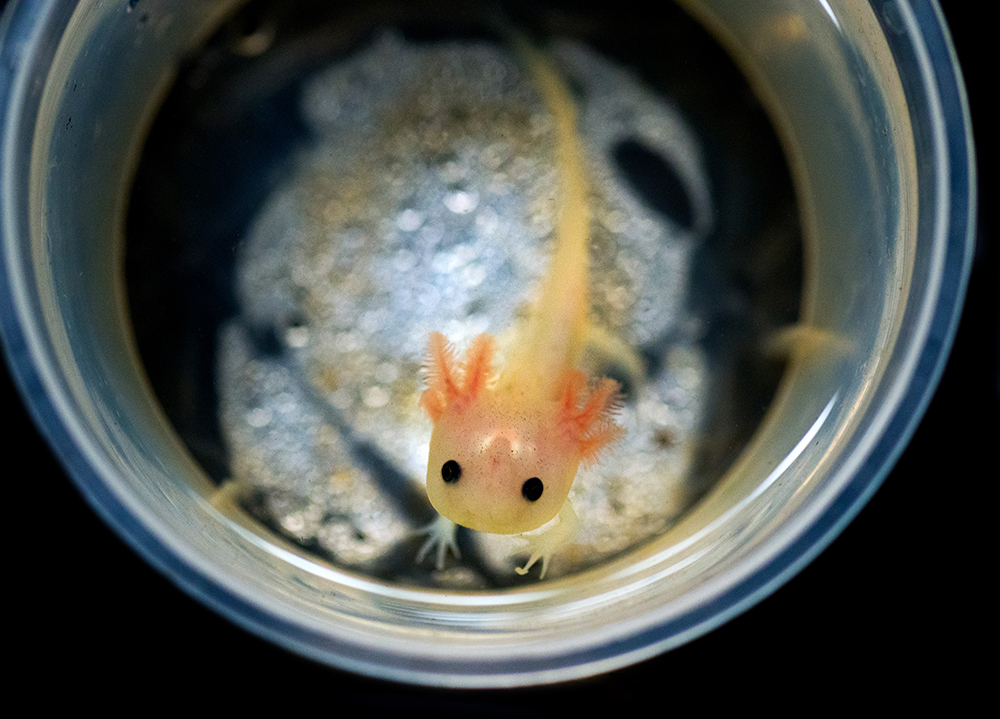
Launching Bioscience Careers at MDI Bio Lab
More graduates and post-docs are energizing the Bar Harbor campus
Gabriela Johnson, a graduate student at MDI Bio Lab, recalls the first time she established a new tool for analyzing cell functions in an adult axolotl (Mexican salamander) which is an emerging model for the study of regenerative medicine.
“Oh, my gosh, it’s working, it’s been confirmed,” she thought. “Overcoming that barrier, and seeing it work for the first time is just amazing. It’s a hard feeling to describe.”
MDI Bio Lab’s leaders say that creating the conditions for young scientists to experience that kind of research success is an essential part of its mission. It’s one reason why the Bio Lab is working to significantly grow the number of graduate students and post-docs doing research here year-round.

“All of the impact of what we’re doing will fall flat if no one carries it forward,” says Iain Drummond, Ph.D., Scientific Director of the Kathryn W. Davis Center for Regenerative Biology and Aging. “We look to grad students to ask new questions, to be demanding and to apply new technologies. They really are an engine for discovery. Their passion and motivation propels the whole enterprise.”
Growing up in rural Dover-Foxcroft, Maine, Johnson has had a lifelong fascination with axolotls. After college, she says, “I really wanted to work with axolotls, but I never expected to be able to work with them right here in Maine.”
But when she discovered that MDI Bio Lab was doing advanced regeneration research using axolotls, it was a scientific match. And with the Bio Lab’s James Godwin, Ph.D., she’s found a mentor whose regard for the animal’s remarkable regenerative abilities equals her own.
“I saw that hugely important part of a mentor-mentee relationship, having that shared curiosity, being able to work on projects together and move the field forward in any way that we can,” Johnson says.
She adds that earlier in her career she saw herself becoming a medical doctor. But working at the Lab amplified a growing interest in basic research.
“Growing up I did a lot of volunteer work in hospitals, so I got to see firsthand what it’s like for patients who are suffering from age-related diseases, or the loss of an arm or a leg,” she says. “I wanted to do my best to make a difference in any way that I can. I felt that research would be the biggest way that I can make an impact on those people.”
Research with axolotls is still an emerging field. Today, as Johnson pursues a Ph.D. here*, she is doing original work to create new techniques for removing individual cell types from the amphibian, to help understand their function and role in development and regeneration.

She believes they will support the creation of a knowledge set that one day can be applied to regenerative therapies for humans.
“The tools that we have here are just so powerful,” Johnson says. “The microscopy equipment and the flow cytometry, CRISPR gene-editing — all of the infrastructure that we have here is, in my opinion, state of the art.”
By the end of 2023, seven new graduate students will join Johnson on campus, expanding MDI Bio Lab’s robust complement of young, creative researchers powering the daily work of science in our laboratories.
It’s part of Bio Lab President Hermann Haller’s strategic vision to support as many as 15 research groups here. He says he’d eventually like to see 40 students of varying levels on campus year-round.
“This is the critical mass we need in order to make science work,” says Hermann Haller, M.D., the Bio Lab’s president. “But at the same time, we will preserve the spirit of MDI Bio Lab, which is being small, and being focused.”
*Johnson will receive her Ph.D. from the University of Maine, a frequent partner with MDI Bio Lab, which works with an international set of degree-granting institutions in Maine, France, and Germany.